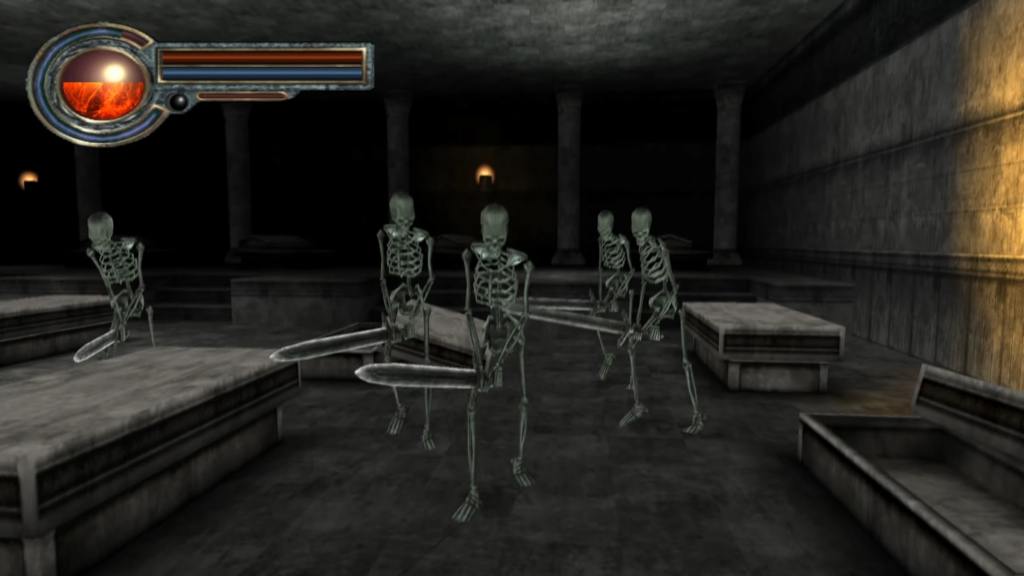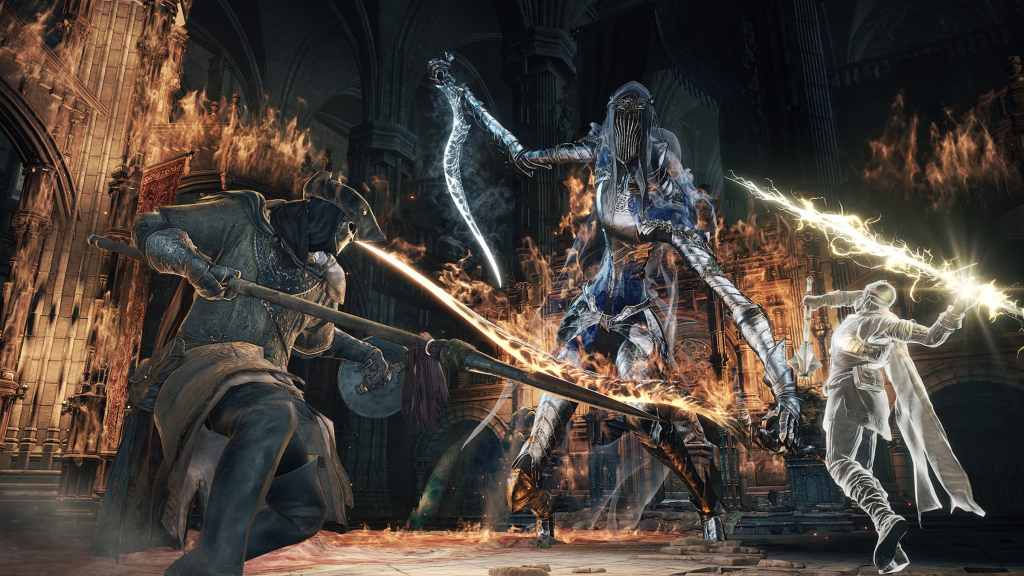For many, the first thing that comes to mind when hearing the word “FromSoftware” is the thrill of being utterly destroyed by some towering monstrosity that couldn’t care less about your feelings. The company’s reputation for crafting unforgiving, punishing, and yet strangely fair worlds has become the gold standard for difficulty in gaming. But before Dark Souls revolutionized game design and Elden Ring cemented the formula as a mainstream phenomenon, FromSoftware had already been cultivating this philosophy for years. Their obsession with challenge wasn’t born from Demon’s Souls; it was merely perfected there.
Videos by ComicBook.com
The origins of this infamous difficulty go all the way back to the 1990s with King’s Field, a first-person dark fantasy RPG that dared to do what few games of its time would: expect players to learn, fail, and adapt. While not as polished or celebrated as their later titles, King’s Field established the DNA that would define FromSoftware forever, an atmospheric world filled with mystery, danger, and a sense of satisfaction that only comes from clawing victory out of relentless defeat. It was the foundation of everything Souls fans love today, just in a more primitive, pixelated form.
King’s Field and the Birth of the Souls-Like Challenge

Released in 1994 exclusively in Japan, King’s Field dropped players into a bleak, hostile world with virtually no guidance. There was no tutorial, no glowing objective markers, and no mercy. Movement was slow and clunky, enemies hit like trucks, and death was an ever-present threat. For those who persevered, however, the payoff was immense. There was a sense of accomplishment that couldn’t be replicated by any other RPG of its time. FromSoftware didn’t design King’s Field to be cruel for cruelty’s sake. They designed it to make players earn every inch of progress.
This mindset was way ahead of its time. During an era when most developers sought accessibility, King’s Field demanded patience and experimentation. FromSoftware realized that challenge is what keeps players playing, even if frustration is inevitable. However, to overcome that negative feeling and achieve something, the elation gained made it worth the journey. King’s Field was FromSoftware’s foray into putting this idea into action. Its labyrinthine corridors and cryptic design rewarded curiosity and punished carelessness, traits that would later become hallmarks of the Souls series.
By the time King’s Field IV arrived in 2001, FromSoftware had sharpened its identity to a point. The slow, methodical combat and cryptic storytelling had evolved, but the core philosophy remained untouched. Death wasn’t failure; it was feedback, and through that feedback, eventually came earned victory. Victories that are earned through hardship taste so much sweeter than ones given to you as a participation reward. It is that ethos that became the heartbeat of every game they’ve made since. It’s why Dark Souls didn’t feel like a fluke success, and why the core identity remains the same even in 2025.
“Skill Issue”: The Philosophy That Forged a Genre

Demon’s Souls was released in 2009, eight years after FromSoftware’s last King’s Field game, and the world wasn’t ready for what they had built. 2009 was during an era of gaming where gaming itself had already become largely mainstream. So, reviewers were divided. Some called it too punishing, others unfair, but those who understood it knew they were witnessing something truly special. The design philosophy that had begun with King’s Field was reborn in a sleeker, more refined form. FromSoftware had learned how to turn difficulty into an art form, using pain not as a deterrent, but as a teacher.
The now-iconic phrase “skill issue” became the rallying cry for players who embraced this design philosophy. Instead of blaming the game, they looked inward, realizing that mastery was always possible with enough patience and understanding. Every dodge, parry, and death was part of a process of improvement; of refinement. The phrase wasn’t about gatekeeping, as it is so often spouted out to be. It was far more about understanding the importance of self-reflection. To those who understand the true meaning of this phrase, when the game seemed impossible, the real question wasn’t “Is this too hard?” but “What can I do better?”
Fast forward to FromSoftware’s Game of the Year, Elden Ring, and the philosophy remains unshaken like a bolduer. Those who thrive on the tension between fear and discovery recognize that Elden Ring isn’t hard because FromSoftware wanted to punish anyone. It’s hard because overcoming adversity is what makes victory meaningful, and that’s it. Those players relish the sweat in their palms before a boss fight, the quiet gasp when they dodge at the perfect frame, and the indescribable joy of overcoming something that seemed impossible hours before. FromSoftware didn’t invent difficulty, but they redefined how it should feel. Most importantly, though, they’ve successfully disproven the common mentality that challenge isn’t fun.
Why FromSoftware’s Pain Feels So Good

Even as the gaming industry has shifted toward accessibility and instant gratification, FromSoftware’s commitment to challenging gameplay feels almost rebellious toward the status quo. They’ve spent decades proving that difficulty, when done right, is not a wall to keep players out but a mountain inviting them to climb. From King’s Field to Elden Ring, that philosophy has never changed, and it’s only gotten stronger as time has passed. Their worlds are cruel, often seemingly unfair on the surface, but the sense of victory they offer is unmatched, cause they’re earned with effort, and not given for free.
For the biggest Souls fan, the kind who welcomes a beating with open arms, this is the reason these games endure. It’s not just about dying and retrying. It’s about learning, evolving, and eventually, conquering. FromSoftware didn’t stumble into greatness with Dark Souls. They earned it through years of commitment to a singular belief: that true joy lies in overcoming the impossible. And for fans, that’s not punishment. It’s perfection.
King’s Field was the humble beginning for this mentality that FromSoftware has cultivated all this time. Their commitment to meaningful challenge continues to shape how players experience their games today. It’s what makes Elden Ring’s open world feel dangerous, even after hundreds of hours into it, and what makes every boss fight feel like a high-stakes duel. That same philosophy is perfectly summarized in Isshin’s iconic words from Sekiro: “Hesitation is defeat.” It is a line that the studio’s entire ethos distilled into one truth. FromSoftware’s games teach players to commit, to act decisively, and to face failure head-on, because doubt is the surest path to ruin. It’s what binds every game they’ve ever made together, a philosophy that challenges not only the player’s skill, but their spirit.
What do you think? Leave a comment below and join the conversation now in the ComicBook Forum!









